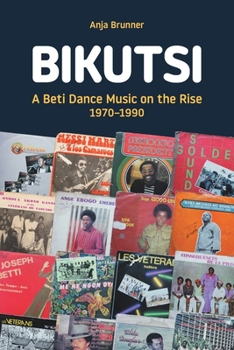Bikutsi: A Beti Dance Music on the Rise, 1970-1990
Select Format
Select Condition 
Book Overview
Bikutsi offers the first ethnographically informed, in-depth historical study of this Cameroonian popular music genre. The thriving dance music in Cameroon's day-to-day life has its foundation in specific historical processes of the 1970s and 1980s, which led to the recognition of bikutsi as a distinct genre of Cameroonian dance music. Examining these processes in detail, this book analyses the various factors involved in the rise of a popular music genre within a national music scene.
The book traces the roots of bikutsi in the musical traditions of the ethnic groups of the Beti who live in and around Cameroon's capital Yaound , and in the manifold popular dance music practices fashionable in mid-twentieth-century Cameroon. It considers the musical work of successful groups and musicians, framing their musical practices and success within the socio-political circumstances, musical environment, and ambitions of individuals. Offering an explanation for the changes in Cameroon's musical life, these analyses illustrate the interplay between the innovative ambitions of individual musicians, a specific political situation within the power structure of the post-colonial state, dedicated individuals in media and the music market, and technological changes in recording and disseminating music.





